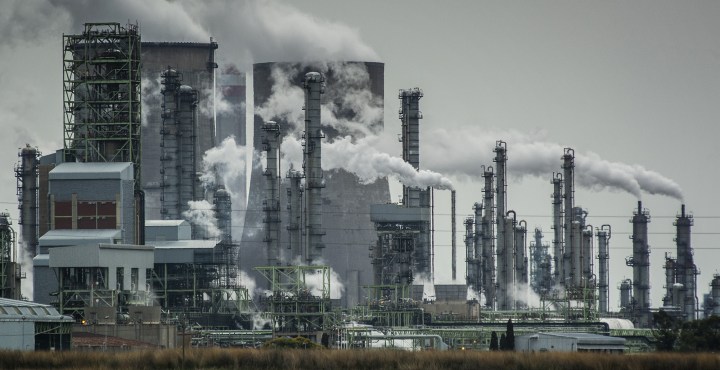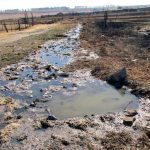PLANET OVER THE LIMIT
Scientists sound alarm over world chemical pollution levels

Levels of chemical pollution have gone beyond what humanity can manage or assess, a study has found, raising the alarm that this can and has led to detrimental effects on environmental and human health.
Chemical pollution has surpassed humanly safe levels, with plastic pollution being of particular concern, a study has found.
The study, which noted limitations in its findings due to the difficulty in assessing and managing chemical pollution, was conducted by more than 10 scientists and researchers from universities across the globe. It said the amount of chemical pollution had exceeded the planetary boundaries and outstripped global capacity for assessment and monitoring.
“The increasing rate of production and releases of larger volumes and higher numbers of novel entities (chemical pollution) with diverse risk potentials exceed societies’ ability to conduct safety-related assessments and monitoring,” the scientists said in the paper.
Chemical pollution poses a threat to human health and causes severe harm to the ecosystem and the Earth’s systems and subsystems. Plastic has been noted as being a chemical of high concern, with chemicals overall having breached a planetary boundary.
Planetary boundaries were established in 2009, and define the space in which the biophysical processes regulating the Earth’s systems function. The purpose of the boundary is to determine the safe operating space for human societies to develop and thrive, according to the understanding of the functioning and resilience of the Earth’s systems.
Artist Jeannette Unite, who is studying for a PhD in geology at the Nelson Mandela University, told Daily Maverick, “It’s a vast study and the nine planetary boundaries from Stockholm provide a brilliant and alarming diagram — particularly because we are beyond the tipping point in three of the boundaries. Humans don’t realise how dire this is — we have very little time to transform — the speculation was that change had to happen by 2050 10 years ago… now we only have, at most, 10 years.”
Chemical pollution threatens the environment as it seeps into the soil, air and water, negatively affecting aquatic and surrounding ecosystems and wildlife dependent on these water bodies, while also affecting the humans who depend on that water.
According to Science Direct, chemical pollutants that are inhaled, ingested or absorbed through the skin can damage the liver, kidneys, nervous system, blood, cardiovascular, immune and reproductive systems.
In South Africa, instances of chemical pollution were reported by Daily Maverick in Durban where agrochemical company UPL’s pesticides and other chemicals poured into the sea following a devastating fire at the facility. Some of the city’s beaches were closed for several months as a result.
Outrage over UPL plan to dump more toxic waste into Durban’s sea
Chemical production has increased at least fifty-fold since 1950, with the expectation that the rate will triple by 2050. To date, more than 350,000 chemicals and mixtures have been registered for production and use; three times more than previously thought.
“After several decades of mass production, plastics are now ubiquitous across the planet. The whole production cycle of plastics carries climate impacts, and plastics may also affect biodiversity through physical impacts; for example, via entanglement or ingestion, adding to other large pressures on biodiversity,” the scientists noted.
The researchers also noted that the rapid rate at which chemicals are being produced and released outweighs the rate that they can be managed and assessed.
According to the paper, published in Environmental Science and Technology, plastics are just one component in the complex web of the industrialisation of fossil fuel-based feedstocks, which produces industrial fertilisers, solvents and several other chemicals.
Some of the recommendations made by the scientists include placing a cap on the emissions associated with chemicals, such as is being done with greenhouse gases.
“We recommend taking urgent action to reduce the harm associated with exceeding the boundary by reducing the production and releases of novel entities, noting that even so, the persistence of many novel entities and/or their associated effects will continue to pose a threat,” the scientists said. DM/OBP
[hearken id=”daily-maverick/9041″]



















 Become an Insider
Become an Insider
Comments - Please login in order to comment.